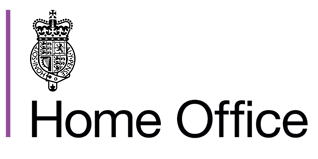HISTORIC PRESS RELEASE : Top Team of Private Sector Managers to Help Deliver Improved Efficiency in the Public Sector [August 1999]
The press release issued by HM Treasury on 8 August 1999.
Colleges, police services, housing departments, and hospitals are all being put under the spotlight by a top team of private sector managers to deliver improved productivity and efficiency in the public sector.
The Public Services Productivity Panel, drawn from leading private sector and consultant managers, has been established under the chairmanship of the Chief Secretary to the Treasury to help the Government hit its target of £8 billion a year of efficiency improvements in the public sector by 2001-02. Every pound of efficiency gains resulting from this work will be reinvested in frontline services.
Announcing for the first time details of the Panel’s work, Chief Secretary to the Treasury Alan Milburn said today:
“Delivering real tangible change for the better in Britain’s key public services is the priority for the remainder of this Parliament.
The Government is committed to delivering modern first class services which make the very best use of the extra cash the Government is providing.
We are determined that £40 billion worth of extra investment in health and education brings £40 billion worth of improvements.
The Panel will help identify the root and branch changes that are needed to ratchet up public service productivity and performance.
This new efficiency drive will free more resources for frontline services.
It will focus on how we can tackle variations in performance in public services.
The Government wants to see excellence for the many not the few. ”
Examples of projects being overseen out by the panel include:
Housing: this Government is investing an extra £3.6 billion to improve the condition of local authority housing and is determined to see this extra cash spent effectively in meeting the needs of local people. But there is currently too much variation in the cost of repairs and the time taken to carry out repairs. This project will seek to find out why these differences exist and will carry out spot-checks on repair work to discover the level of customer satisfaction with repairs.
Staff: in seeking to ensure top quality efficient public services, the Government recognises the importance of well-motivated staff. We are therefore examining what motivates managers and staff in the public and private sectors and looking at ways in which we can provide the right incentives. That includes pay, but also other forms of recognition. This project is looking closely at four Government agencies that deal directly with the public – the Inland Revenue, Customs & Excise, the Benefits Agency, and the Employment Service.
The NHS: there are almost 11 million new NHS outpatient appointments each year, as well as around 27 million follow-up appointments, at a cost of over £4 billion. The performance of outpatient services is therefore vital to the quality and efficiency of the NHS. This project aims to identify ways in which we can improve the delivery of outpatient services across the NHS.
Schools: this project seeks to raise standards and save time in schools by improving communication between central Government and individual schools; enabling comparison in performance between schools more easily; spreading best practice between schools; and making individual schools more accountable for their own performance.
The police: The Government spends some £7.5 billion every year on policing in the UK. Ensuring the quality and efficiency of the police is therefore a priority. The Government has set tough new targets for reducing crime and the fear of crime. It has also set a 2% efficiency target, year on year for the next three years, for the police to focus more resources on the front-line fight against crime. This project will examine ways to measure the efficiency of police forces and how new approaches can ensure the most efficient use of police resources.
Customer service: a key objective of the Government’s modernisation agenda is to deliver public services that meet the needs of citizens. For many critical services, Government agencies are the first point of contact for members of the public. This project will assess the quality of service provided by three such services: the DVLA, the Driving Standards Agency, and the Highways Agency. The quality of customer service will be tested through a ‘mystery shopping’ exercise.



